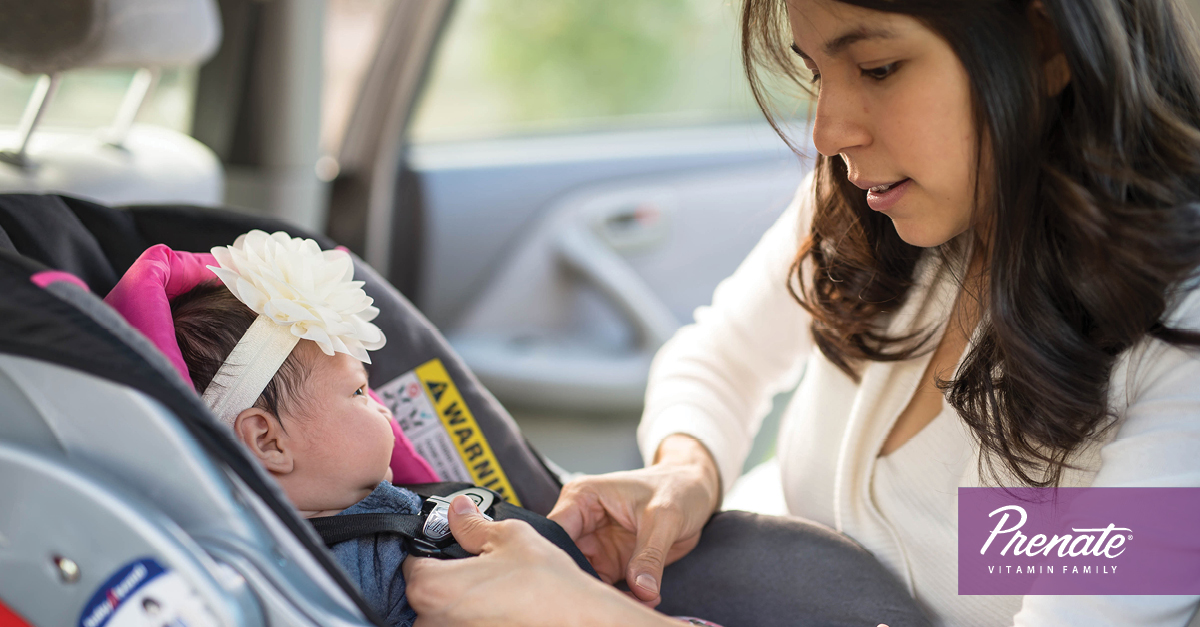Bringing Baby Home: Tips for keeping your baby safe and healthy
September 3, 2015
In honor of Baby Safety Month, here are some helpful tips to keep your bundle of joy safe and healthy in the days and weeks after delivery.
Travel Safety
Before you leave the hospital, it’s extremely important that your baby’s car seat is correctly installed. Car seats are required by federal law, and hospitals or birthing centers will not let you bring your baby home without one.1 While most new parents know car seats are important, many struggle to install them correctly. To make sure you’ve done the job right, have you baby’s car seat checked at a car seat inspection station http://www.safercar.gov/cpsApp/cps/index.htm near you. Certified technicians will inspect your baby’s car seat and show you how to correctly install and use it.
Protect Infants from Hazards
For infants under one year, the leading cause of death is SIDS (Sudden Infant Death Syndrome). SIDS is not any one illness or disease, but a term given when an infant dies suddenly without any explained cause or reason. While SIDS is not completely preventable, the American Academy of Pediatrics recommends the following to reduce the risk: 2
- Put your baby to sleep on his or her back. 2
- For bedding, choose a firm, flat mattress and a fitted sheet only. 2
- Do not put bumper pads, pillows or toys in your baby’s bassinet or crib. 2
- Sleep in the same room as your baby, but not in the same bed. 2
- Get regular prenatal care. 2
- Don’t smoke, drink or use illegal drugs during your pregnancy. 2
- Keep your baby away from cigarette smoke. 2
- Ensure your baby receives all recommended vaccinations. 2
- Avoid covering your baby’s head or allowing your baby to become overheated. 2
- Breastfeed if possible, as recommended by the American Academy of Pediatrics 2
Nutritional Health
During the first weeks (and months) after your baby is born, you will be focused primarily on his or her eating, sleeping and diaper changes. Breastfed babies must nurse multiple times a day – every few hours – to receive the nutrients required for growth and development. As a breastfeeding mother, you won’t measure your baby’s food so it can be difficult to know exactly how much milk you are producing. You can tell if your baby is getting enough milk if he or she is mostly content and gaining weight steadily after the first week.3 Here are some other signs that your baby is getting plenty of milk:
- She is passing clear or pale yellow urine. 3
- She has on average three bowel movements every 24 hours in the first 2 to 7 days of life. 3
- She switches from short sleeping periods to wakeful, alert periods. 3
- She is satisfied after feeding. 3
- Your breasts feel softer after feedings. 3
If you have any questions about your milk supply or baby’s weight, it is always best to consult with your doctor.
Nutritional Support for Mom & Baby
While breastfeeding, it is extremely important for women to receive the recommended daily requirements of key vitamins and minerals, as they pass these essential nutrients to their infants in breast milk. The Prenate® Vitamin Family offers nutritional support for mothers and their babies for every step of pregnancy and after delivery. Ask your doctor if the Prenate® Vitamin Family is right for you. Click here to learn more about the Prenate® Vitamin Family.
You Are About To Leave This Website
By clicking continue, this link will take you to a website to which Alora Pharmaceuticals Policies & Terms of Use do not apply. Alora and its subsidiaries do not control the content or accuracy of third-party websites and assume no responsibility for their use.













